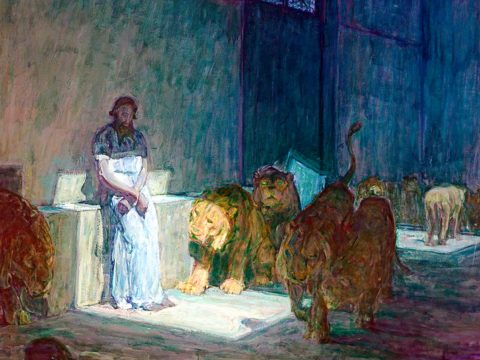
Where sin aboundeth, there grace doth much more abound.
Rom 5:20
If the soul groans under the guilt of sin, then that promise relieves it, in Jer. xxxiii. 8; I will, pardon all their iniquities, whereby they have sinned against me ; and that promise, Isa. xliii. 25; I, even I, am he that blotteth out thy transgressions for mine own sake, and will not remember thy sins.
I, even I, am he, that blotteth out thy transgressions.
I, even I whom thou hast offended;
I, even I whom thou hast provoked;
I, even I whose glorious name thou hast profaned;
I, even I whose righteous law thou hast violated;
I, even I whose holy covenant thou hast transgressed;
I, even I whose mercies thou hast despised;
I, even I whose chastisements thou hast slighted,
will blot out thy transgressions for mine own sake.
I, even I, is a passionate and emphatical expression.
God’s goodness runs over to sinful creatures; and where sin aboundeth, there grace doth much more abound. If the creditor himself blot out the debt, and cross the book, surely it shall never be remembered more. Our sins are debts which God who has the power of life and death, of heaven and hell, of condemning and absolving, has engaged himself to blot out as a thick cloud; I have blotted out as a thick cloud thy transgressions, and as a cloud thy sins, Isa. xliv. 22. An under officer may blot out an indictment, and yet the offender may be never the better for it; but if the king, who is the supreme judge, shall blot it out, then the offender is safe. The application is easy.
If the soul is deserted, then that promise relieves it, in Mic. vii. 18, 19; He will turn again, he will have compassion upon us.
If the soul is sliding, and ready to fall, then that promise supports and upholds it in Psalm xxxvii. 24; Though he fall, he shall not utterly be cast down, for the Lord upholdeth him with his hand; or, as the Hebrew has it, The Lord upholding him with his hand. The Hebrew denotes a continued act of God. God has still his everlasting arms under his people, so that they shall never totally nor finally fall. And the root from whence this word is derived, signifies to sustain or uphold, as the tender mother does the little babe. The safety and security of the child lies not so much in the child’s hanging about the mother’s neck, as in the mother’s holding it fast in her arms. So our safety and security lies not so much in our weak holding upon Christ, but in Christ’s holding us fast in his everlasting arms. This is our glory and our safety, that Christ’s left hand is always under us, and his right hand does always embrace us.
Thomas Brooks. The Unsearchable Riches of Christ.



